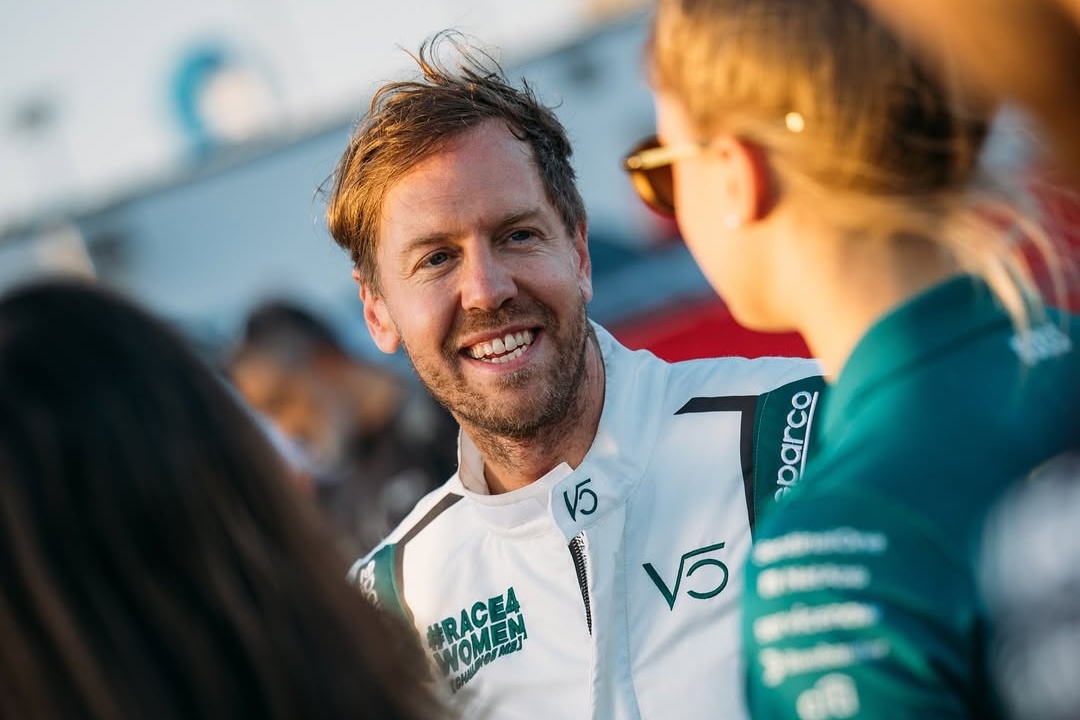


Sebastian Vettel may have stepped away from the Formula 1 grid, but the four-time world champion continues to keep a close eye on the sport's future - and he isn't sold on its biggest upcoming shake-up.
The German, known for his environmental advocacy, acknowledges the intent behind the 2026 rules but argues that their execution falls short, particularly in terms of cost, efficiency, and fan appeal.
As F1 prepares for its most significant overhaul in over a decade, Vettel's concerns highlight the challenges of balancing innovation with practicality.
Next year's regulations will introduce a major shift in Formula 1, with revamped chassis and power unit rules designed to enhance sustainability and performance.
The new hybrid engines will prioritize a 50-50 split between electric and internal combustion power, the latter running on sustainable fuel.
While these changes align with Vettel's environmental values, he remains unconvinced by their implementation.
A Bold but Flawed Vision
"The new regulations aren't entirely convincing to me yet," Vettel told Auto Motor und Sport. "Energy recovery is great, but doing it only on the rear axle and ignoring the front axle doesn't make sense to me."
Vettel draws parallels to the 2014 hybrid engine introduction, which he believes set a precedent for costly missteps.
"The 2014 regulations were good in principle. The idea behind them was right," he said. "But the implementation wasn't right. It cost far too much money and didn't bring anything to the series."
He argues that the 2026 rules risk repeating these mistakes by prioritizing cost-cutting measures, such as eliminating innovative solutions from the current engine regulations, to attract new manufacturers.
"Innovative solutions from the previous [current] engine regulations are being dispensed with in order to make it less expensive," he noted.
"This is intended to attract new manufacturers. The electric component is generally good, and it's also needed in mobility. But on the road, we're already further along with 100 percent electric mobility, due to the unbeatable efficiency."
However, Vettel is clear that an all-electric approach, like that of Formula E, is not the answer for F1.
"Motorsport has different requirements," he said. "At the 24 Hours of Le Mans, they are completely different from those in Formula 1 or the junior classes. Either way, it won't work with fully electric drives."
Weight and Cost Concerns
Another sticking point for Vettel is the increasing weight of F1 cars, which now sits at 800 kg. Next year will see a modest 30 kg weight reduction, but Vettel believes the cutback is insufficient.
"We're moving a little in that direction now, but it's just a drop in the ocean," he explained. "The cars are far too heavy. They should actually be 200 kilograms lighter."
Cost is another critical issue. Vettel emphasized that the current engine formula is prohibitively expensive and has failed to deliver meaningful technological transfer to road cars.
"The current engine is too expensive," he said. "Aside from the hybrid version, there hasn't been a transfer to series production because it was too complex and too expensive."
For Vettel, the 2026 regulations must strike a balance between innovation and affordability to ensure the sport remains viable for teams and manufacturers.
Prioritizing Fans and Competition
Beyond technical concerns, Vettel stressed the importance of keeping Formula 1 engaging for fans. He believes the regulations should foster close competition without compromising the sport's essence.
"From a sporting perspective, the competition must be as close as possible without damaging the spirit of Formula 1," he said. "And people must also be able to afford the sport."
When asked about his ideal engine formula, Vettel underscored the need for clear objectives and financial feasibility.
"It's always about: What are you trying to achieve? How do you achieve it? Where do the funds come from?" he said.
As Formula 1 navigates this pivotal transition, Vettel's critique reflects a broader concern within the sport about whether the 2026 regulations will deliver on their ambitious goals.
With his extensive experience as an F1 driver, combined with his passion for sustainability, Vettel's perspective carries weight. His call for smarter, more practical rule-making serves as a reminder that F1 must balance innovation with accessibility to maintain its global appeal.
Keep up to date with all the F1 news via X and Facebook
Your email address will not be published. Required fields are marked *
No comments yet. Be the first to comment!